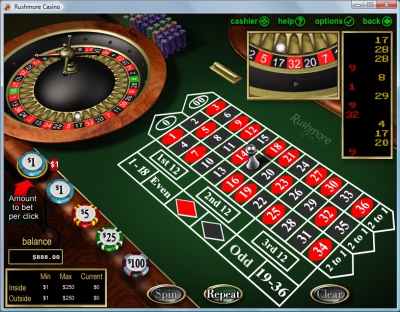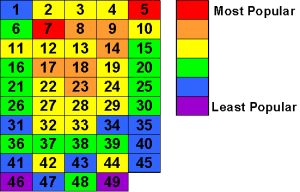
My current get rich scheme is going ok, though metaphorically I feel like the old miser who is fishing coins off the back of sofas and other peoples sofas to raise the coins to buy magic beans for my efforts. Small wonder if ad-sense is really a profitable get rich scheme is really working or not.
Instead I am thinking maybe luck has something to do with such endeavors, Its either luck or something sinister. Consider Ashley Revell who sold his house, all of his possessions and cashed in his life savings to the amount of £76,840. Flying out to Las Vegas headed to the roulette table to place it all on red (50/50 odds)
The result was that he did will when it landed 7 red. This was a straight gamble double or nothing, which ended favorably. But when Edward Thorpe a mathematics student at the Massachusetts Institute of Technology, went to the same Casino about 40 years previously, he knew pretty well where was the ball going to land. He took the profits to a racecourse, a basketball court and the stock market and became a multimillionaire. He wasn't on a lucky streak, he was just using his knowledge of maths to understand and beat the odds.
No one can see into the future and predict a outcome but the powers of probability can help. In january 14th Alex white will never forget, He matched six numbers on the UK National lottery, with an estimated 16 million. There lots of books that claim to improve your odd of winning the lottery, none of them work Every combination of numbers has the same odds of being picked as any other. Its a 1 in 13,983,816 in the case of the English national lottery.
So how do you choose a combination unique to you?.
Simon Cox (a mathematician from university of Southampton England) worked out using maximum Entropy method to estimate the probability of each of the 14 million tickets being chosen by players in the national lottery. But using 113 lottery draws, He compared the winning numbers with how many people had matched four, five or six of them and thereby inferred which numbers are most popular.
But what are the magic numbers?
 The remarkable draw on 14th november 1995 when 133 tickets shared 16 million, the winning numbers were 7,17,23,32,38,42,and 48 all which lie in the special columns of the ticket. The winner collect a prize of £120,000 each that night. The information showed that choosing the numbers at random would have a long term gain of 45 pence in the pound. For every unpopular combination of numbers such as 26,34,44,46,47 and 49 the return has increased to 95 pence to the pound.
The remarkable draw on 14th november 1995 when 133 tickets shared 16 million, the winning numbers were 7,17,23,32,38,42,and 48 all which lie in the special columns of the ticket. The winner collect a prize of £120,000 each that night. The information showed that choosing the numbers at random would have a long term gain of 45 pence in the pound. For every unpopular combination of numbers such as 26,34,44,46,47 and 49 the return has increased to 95 pence to the pound.Its unfortunate, although its possible to double long term winnings its not enough to make a profit Also the numbers are expect to happen after millions of years.
The strategy seems clear to pick number above 31, also pick numbers that are clumped together or around the edges of the form. That way if you win you might not have to share your winnings with anyone else. Its a shame you have run this methodology other until the end of the 28th century.
I still think probability is a excellent guide line to to choosing in a gambling situation, though Its best not to gamble anyway. I see blogging for profit a gamble too, but still work on it as a way to learn about the world.
I figure if I keep writing topics that interests me and educate people I might get decent following. Luck doesn't come into risk taking, its just weighting probabilities and choosing to commit to the rules...




No comments:
Post a Comment